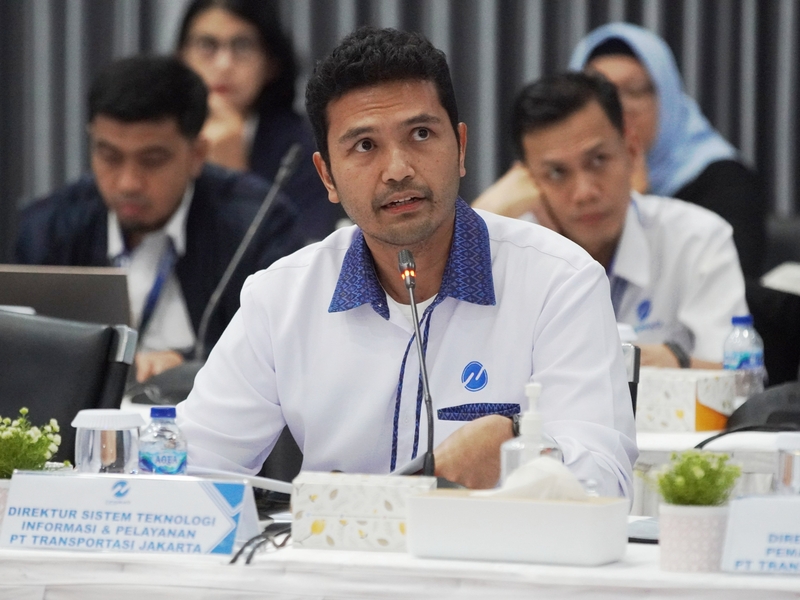

Friday, July 11th 2025 Reporter: Aldi Geri Lumban Tobing Translator: Nugroho Adibrata 135

(Foto: Istimewa)
PT Transjakarta continues to demonstrate its commitment to providing efficient, modern, and data-driven public transportation services.
With AI, we are optimistic that this number will continue to grow significantly
One of the strategic breakthroughs that is currently being accelerated is the implementation of artificial intelligence (AI) technology in two main pillars of digital transformation, namely AI-based operational management systems and TJ:Transjakarta customer applications.
Information Technology Systems and Transjakarta Services Director, Raditya Maulana Rusdi said that besides supporting system efficiency, AI technology also opens up real opportunities for sustained increases in the number of customers.
He acknowledged, Transjakarta is striving to build an adaptive, data-driven, customer-oriented service ecosystem. Moreover, AI technology is one of the main enablers that can drive ridership growth.
"Our daily customers have hit 1.4 million. With AI, we are optimistic that this number will continue to grow significantly," he asserted, Friday (7/11).
He explained the concrete implementation of AI can be felt through the TJ:Transjakarta application, which was officially launched on September 4, 2024, and has now been downloaded more than one million times.
This application allows customers to access service information in real-time, from bus arrival time estimates, fleet tracking, to trip planning features that help significantly reduce waiting times.
It is now available on iOS and Android operating systems, making it more accessible to the public.
"With a customer-centric approach, Transjakarta places the customer experience as the top priority in every technological development," he added.
On the operational side, AI is used to analyze customer mobility patterns at each stop and fleet based on historical data. This analysis serves as the basis for the automatic scheduling algorithm that ensures the fleet is allocated precisely according to field needs.
According to him, the schedule is then sent directly to the onboard units (OBU) of each bus, creating a comprehensive integration between the command center and field operations.
"With AI, we no longer rely solely on intuition but make decisions based on predictions and accurate data. Empty bus stops with arriving empty buses will become increasingly rare. Fleet distribution will be much more efficient and responsive to the needs of the community," he added.
Besides improving services, this will also impact the management of public budgets to be more responsible. He believed, optimizing routes and operational frequency directly contributes to reducing the subsidy burden from the Jakarta Government as the main shareholder of Transjakarta.
"AI opens a new chapter in sustainable public transportation management. We believe Transjakarta can become a model for digital transformation in the public sector in Indonesia," he closed.